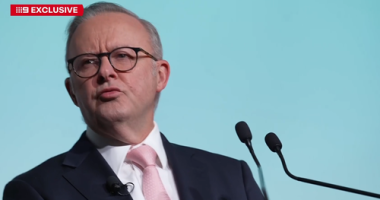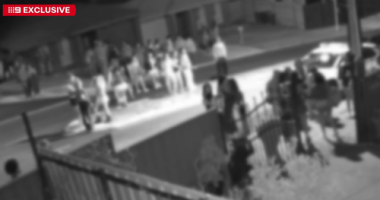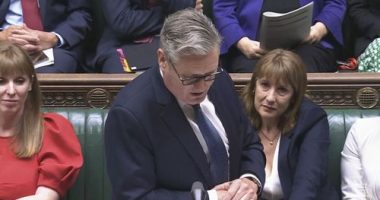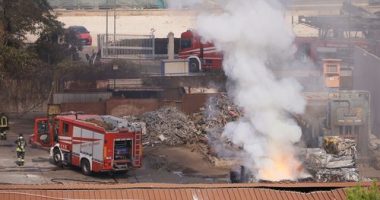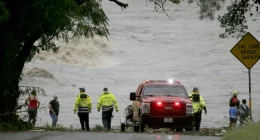Share this @internewscast.com
“The government is clueless about the impact and what is yet to come. It is at its weakest. Now is your chance to rise and voice your demands,” Netanyahu encouraged.
He expressed hope for an uprising among the Iranian populace, noting that the limited non-military casualties in the first phase of attacks pointed to broader intentions.

Footage from central Tel Aviv showed fire and smoke rising from a condo tower. Source: AP / Tomer Neuberg
The Israeli embassy in Washington insisted: “The future of Iran can only be determined by the Iranian people.”
“As a nation that values democracy, Israel believes it is the right of a country’s people to determine their political future and select their leaders,” the embassy informed Reuters.
‘Chance of a popular revolt’
The strikes early on Friday hit not just Iran’s nuclear facilities and missile factories but also key figures in the country’s military chain of command and its nuclear scientists, blows that appear aimed at diminishing Iran’s credibility both at home and among its allies in the region — factors that could destabilise the Iranian leadership, experts said.
“People are unhappy about not just the economic decline that’s likely to come, but also the fact that they believe Iran doesn’t need the war with Israel.”
The unrest in 2022, known as the “Woman Life Freedom” movement, spread across most of Iran but failed to establish a major, lasting political opposition in the country.
“If that were to actually take place and if regime change in Iran is actually the end goal of the current Israeli government, then I would say we are looking at escalation of this current phase of direct conflict in the medium to long-term, over the coming months.”

Israeli authorities said dozens were injured in Iran’s retaliatory strikes on Jerusalem and Tel Aviv. Source: Getty / picture alliance/dpa
Netanyahu has called for a change in Iran’s government, including in September.
The United States government has given no indication it seeks regime change in Iran.
Toppling Iran regime could be risky
“In the ideal world, Israel would prefer to see a change of regime, no question about that,” she said.

Iranian people look over damage to buildings following Israeli airstrikes in Tehran. Source: Getty / Majid Saeedi
But such a change would come with risk, said Jonathan Panikoff, a former US deputy national intelligence officer for the Middle East who is now the director of a Middle East security initiative at the Atlantic Council.

